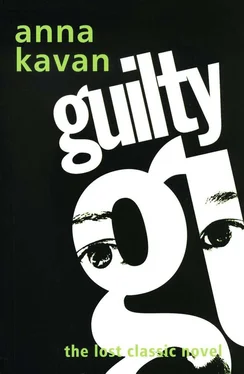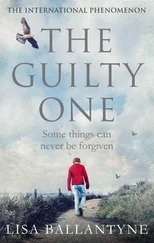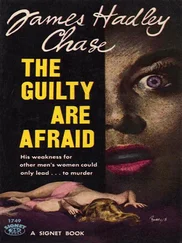Anna Kavan - Guilty
Здесь есть возможность читать онлайн «Anna Kavan - Guilty» весь текст электронной книги совершенно бесплатно (целиком полную версию без сокращений). В некоторых случаях можно слушать аудио, скачать через торрент в формате fb2 и присутствует краткое содержание. Год выпуска: 2007, Издательство: Peter Owen Publishers, Жанр: Современная проза, на английском языке. Описание произведения, (предисловие) а так же отзывы посетителей доступны на портале библиотеки ЛибКат.
- Название:Guilty
- Автор:
- Издательство:Peter Owen Publishers
- Жанр:
- Год:2007
- ISBN:нет данных
- Рейтинг книги:3 / 5. Голосов: 1
-
Избранное:Добавить в избранное
- Отзывы:
-
Ваша оценка:
- 60
- 1
- 2
- 3
- 4
- 5
Guilty: краткое содержание, описание и аннотация
Предлагаем к чтению аннотацию, описание, краткое содержание или предисловие (зависит от того, что написал сам автор книги «Guilty»). Если вы не нашли необходимую информацию о книге — напишите в комментариях, мы постараемся отыскать её.
Guilty — читать онлайн бесплатно полную книгу (весь текст) целиком
Ниже представлен текст книги, разбитый по страницам. Система сохранения места последней прочитанной страницы, позволяет с удобством читать онлайн бесплатно книгу «Guilty», без необходимости каждый раз заново искать на чём Вы остановились. Поставьте закладку, и сможете в любой момент перейти на страницу, на которой закончили чтение.
Интервал:
Закладка:
My one small satisfaction was to know I could watch without being noticed; but I had no sooner entered the kitchen than I’d have given anything to have stayed in the other room. Had it been possible I’d have run away. But now, in true nightmare fashion, I was frozen in immobility, unable to speak or move, forced to witness my own horrific imaginings made real.
I’d imagined my father mad, and what but madness could now make him snatch the lid off the dustbin (my voice frozen within me, I trembled all over at the thunderous nerve-shattering clang with which it crashed to the floor) and proceed to stuff his beautiful uniform into it, on top of potato peelings, tea leaves and garbage of all descriptions? The bin was already half full. It was not easy to thrust the garments into it; he had to cram them down with both hands, finally setting his foot on the top of the lot, and with evident satisfaction stamping the fine material deep into the squelching, malodorous mess.
Aghast, I looked at my mother, wordlessly imploring her to stop this madness, or at least to assure me these acts were not as mad as they seemed, appealing to her (as hitherto in every crisis I’d appealed successfully) to save me from this fantastic nightmare. For the first time in my life the assurance wasn’t forthcoming. She neither put an end to the grotesque and frightful scene nor removed me from it. And as I watched her fluttering around, pecking and plucking at him with ineffectual darting motions and thin protesting cries, as flimsy and useless as a bird’s, it gradually dawned on me that, at this moment, she was almost as helpless as I was myself. She was not, as I’d always believed, infallible and omnipotent where I was concerned; there were some situations against which she was powerless to protect me.
I know one doesn’t grow out of babyhood on a single occasion, but I must have taken a long step forward when I made this shocking discovery. And perhaps the peculiar nightmare quality of the episode has stayed so clear in my memory, with all its crazy detail, because it obscured to some extent the realization that the being upon whom I’d lived till then in total dependence was, after all, only human. Meanwhile, it was the turn of the little boxes which had looked so promising, when viewed as I normally viewed the chance of a present. Throughout my father’s performance, they had been lying disregarded on the dresser beside me. I wished I’d slipped one of them into my pocket, as I easily could have done at any moment up to now, when he gathered them up in his strong sunburned hands, snapped them open one after the other, ripped out the medals embedded within and consigned these, too, to the dustbin.
I remember our kitchen as rather a dull little room, a drab background across which the decorations flashed, briefly exotic as a shower of meteors, before they slid out of sight with no more fuss and less noise than coins sliding into a purse; far too pretty, I thought, with their rainbow ribbons, to be swallowed by the sordid, dirty grey bin full of disgusting rubbish. Since there was no room left in it for the cases that had contained them, my father threw these on to the floor and dispatched them in the same summary fashion, stamping them into shapelessness and grinding beneath his heel those that resisted destruction.
It was all over in a moment. The glittering discs and crosses were gone without trace. Nothing was left of that brave display but a few broken scraps of framework and torn shreds of leather and velvet, which he kicked into a corner where they could not be seen. Lifting the fallen lid, he replaced it carefully on the bin, looking around to make sure he’d left no sign of disorder anywhere. Then, satisfied that the room was restored precisely to its original state, he went across to the sink and turned on the tap.
A child’s time is different from an adult’s, and I seemed to have been locked in nightmare for an eternity. I felt I’d reached the ultimate point of endurance where I must escape or die. Most opportunely, the noise of water rushing out of the tap, that most ordinary of household sounds, came now to the rescue, reasserting the existence of all that was known and familiar in my daily life.
The exotic, the splendid, the terrifying, the mad had disappeared, snapped back as if on an elastic band to the world of magic, both good and bad, which for me was all the while lying as close behind the common face of appearances. The sight of my father in his old clothes, calmly and thoroughly washing his hands with green Puritan soap, as if he’d never been a hero or fought in a war, reaffirmed the unreality of the magical. Could I have imagined the uniform and the medals? Could I possibly have imagined the whole incident?
It didn’t seem so very unlikely, for there was not then any hard-and-fast line of division between my two worlds, which at times overlapped in a confusing manner. I thought of the tall, thin man, as substantial as my parents in every detail of his appearance and just as much a reality to me (only differing from other people in his harmless habit of coming through doors without opening them), remembering how bewildered I’d been when I discovered that nobody else could see him. I’d known him for years, and we’d always been on the best of terms till, shortly before my illness, my mother had told me I was getting too old for such fancies. Though she’d spoken kindly, after this I was no longer at ease in my mind about him and wished he would stop coming to see me — but it was impossible to say this to an old friend — as henceforth his visits would have to be kept secret. Later, while I was lying in bed (though I knew I couldn’t be scolded for anything till I was well again), the problem her words had raised weighed so heavily on my sick brain that I used to implore him to go away when he stood looking down at me reproachfully, and afterwards beg her to tell me he hadn’t really been in the room.
Now, in the same way, I longed to call out, ‘None of that really happened, did it?’ But she, as if suddenly tired, had sat down at the scrubbed table, on which she rested her arm, deliberately placing her head upon it as if she’d just decided to take a nap there. Only she never took naps in the daytime; and I knew that, if by some chance she were to do so, it would certainly not be with her head on the kitchen table.
So the nightmare was still going on, though I could stand no more of it. And when I realized that she was quietly crying this was the last straw. Absolutely at the end of my tether, I lifted up my voice and started to weep aloud, making a lugubrious duet of our mutual grief.
I don’t remember any more of that day’s events. Curiously, I wasn’t troubled again, at least not consciously, by feeling responsible for my father’s mad actions, and if there were consequences below the surface I failed to recognize them.
My mother never talked to me about his pacifism, keeping from me all the unpleasant publicity the case attracted. I’ve no doubt she meant to shield me from her own unhappiness by saying nothing, but it might have been better for me if she’d been less restrained, for I couldn’t help being aware of the conflict between them, which changed the whole atmosphere in which we lived. I see now how close to each other they must always have been, so that they were too absorbed in their personal tragedy to consider how lost and bewildered I felt, deprived suddenly of my importance as a part of the family unit — one that was breaking up — both of them too preoccupied to think much about me. But at the time I could not understand their apparent indifference to my feelings. Though there were no arguments in my presence, I’m sure my mother did everything in her power to dissuade my father from his new opinions, making use of every weapon at her command — blandishments, as well as appeals and denunciations. It must have been hard to convince her that he couldn’t be shaken, but, once she was convinced, the thing obsessed her, and she persuaded herself that he’d disgraced us all. Since her nature was too gentle for bitterness, she lapsed then into a state of aggrieved melancholy, withdrawing into herself more and more, seeing no one, staying indoors and doing all the housework, dismissing the maid we had employed for years. When my father protested that it was too much for her and that there had been no need to get rid of the girl, she replied in terms of veiled reproach, somehow implying, so that even I half understood, that his principles were to blame, as though he’d deliberately imposed on her this penance of drudgery and isolation.
Читать дальшеИнтервал:
Закладка:
Похожие книги на «Guilty»
Представляем Вашему вниманию похожие книги на «Guilty» списком для выбора. Мы отобрали схожую по названию и смыслу литературу в надежде предоставить читателям больше вариантов отыскать новые, интересные, ещё непрочитанные произведения.
Обсуждение, отзывы о книге «Guilty» и просто собственные мнения читателей. Оставьте ваши комментарии, напишите, что Вы думаете о произведении, его смысле или главных героях. Укажите что конкретно понравилось, а что нет, и почему Вы так считаете.












